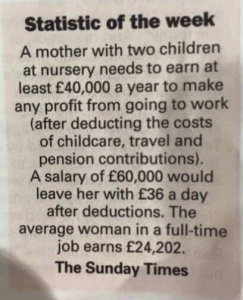Stress is the body’s response to a threat, in the simplest terms. It is useful to go into ‘fight or flight’ mode if you are in immediate danger; it becomes a problem when you are spending too much time in that state of stress, in response to things that aren’t actually dangerous to you.
People get stressed for all sorts for reasons at Christmas; there is so much to do with a strict time limit. From buying presents to preparing food; meeting up with all the various branches of the family, friends and colleagues; feelings of grief, loss and loneliness if you are unable to spend time with loved ones; there are so many extra responsibilities that we need to pay attention to at this time of year. We try to squeeze a week’s worth of activity into a single day – every day.
Many of these pressures, though, actually come from our internal expectations. The desire to give the perfect gift, serve the perfect meal, be there for everyone, and be happy and joyful throughout it all.
Add to this the fact that we have had a whole year of cumulative stress building up – little things piling on through the year, ending in this time of fuss and activity – meaning that what we can cope with in September, causes us to feel burnt out by December.
- Be honest – with yourself and others. Be realistic about what commitments you can actually keep without piling too much pressure on yourself.
- Don’t believe the pictures –all those picture perfect Christmas trees, meals, laughing children, joyful pictures you see on social media. It’s only a snapshot of the best of someone else’s life. Moments after the photo was taken, it probably all dissolved in screaming piles of tears. Don’t get sucked into measuring yourself against something that isn’t entirely real.
- Say no. To people, or commitments, whatever is just too much. Ask for help too, people love to be asked and feel useful
- Buy or make gifts that have meaning. You don’t have to give the best or funniest or most expensive gifts. Shop local and support your community.
Christmas can be a time when old family conflicts resurface; this is perhaps one of the biggest stresses at this time of year. Think about letting some of those old quarrels go – do they really matter anymore? Does it really matter if lunch is late? If someone makes a comment about your house, or children, partner, or life, do you need to respond in a negative way? Try simply smiling and thanking them for their advice.
Keep the conversation light; ask questions that show you are interested in the other person and what they have been doing. This has the added bonus of keeping the attention away from you, which can be great if you often feel criticised by others.
This is the season of goodwill, so be the one to start spreading it! The people around you may well follow your lead…
Merry Christmas!
First published in Castleton Parish News


 This is about habits of connection. All our children really want is connection. They want to know that you’re there; that you see them; that you hear them; that you love them.
This is about habits of connection. All our children really want is connection. They want to know that you’re there; that you see them; that you hear them; that you love them.

 A friend shared this on Facebook today. There was no context, no date, but my immediate response was, “Ooh, awful. Isn’t the world just a rubbish place for us women?”
A friend shared this on Facebook today. There was no context, no date, but my immediate response was, “Ooh, awful. Isn’t the world just a rubbish place for us women?” Once upon a time, there was a busy, successful teacher. She was passionate about her work supporting children on the Autistic Spectrum in a mainstream school; she was excited about her work with the other pupils in the school as part of the Pastoral Team, focussing on developing their ability to learn and grow; she was a great manager to her team, she really cared about their development as people as well as their professional development.
Once upon a time, there was a busy, successful teacher. She was passionate about her work supporting children on the Autistic Spectrum in a mainstream school; she was excited about her work with the other pupils in the school as part of the Pastoral Team, focussing on developing their ability to learn and grow; she was a great manager to her team, she really cared about their development as people as well as their professional development.